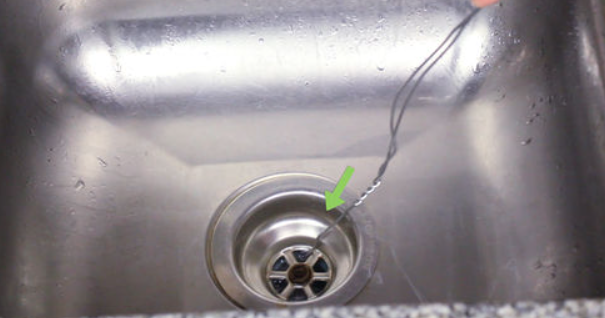Harsh chemicals promising fast results are not always an ideal solution for blockages. They often contain chemicals which can damage your sink, fittings, or pipes, leading to corrosion.
Natural alternatives to chemicals:
1. Slightly cooled, boiled water can be effective at removing smaller blockages like grease, fat, and a build-up of oils.
2. Half a cup of salt left to sit for 5-10 minutes, followed by hot water can also be effective at removing blockages. Alternatively, 2 cups of baking soda plus 2 cups of white vinegar may also be helpful. This solution should fizz and bubble and is a great way of removing gunk.
3. A flat-bottomed plunger may be helpful in manually removing larger blockages. This method should never be used in conjunction with chemicals, in case of harmful splashback. It may take a few attempts to shift the blockage.
4. Removing the P-trap (also known as the U-bend) can be messy but may also help to unblock a sink without the need for a professional. Make sure to turn off the water, loosen the fitting, and then take it outside for a thorough clean before reinstalling.
5. A drain snake or cable auger is a useful tool for removing blockages. A gentle push into the pipe allows the blockage to become entangled in the fibres and be removed.
When to call a professional:
Professional companies offer an unblocking service with advanced solutions, suitable when the problem lies further down into the sewage system and cannot be removed conventionally. They will often utilise CCTV techniques to locate the blockage, to determine if any damage is repairable or requires replacement.
For further information on patch repairs and sewer pipe lining Wolverhampton, take a look at www.wilkinson-env.co.uk/sewer-repairs-drain-lining-concrete-cutting/drain-repairs/drain-repairs-wolverhampton.
Avoid regular build-up becoming a serious issue, by cleaning drains regularly. An occasional blockage can be quite normal, but frequent issues may indicate a more serious problem which requires professional expertise.


